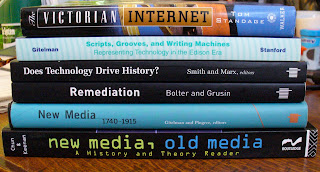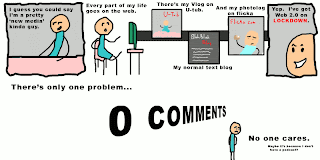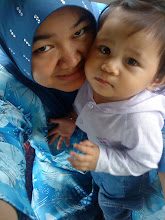The advantages of the new media and internet are that unlimited knowledge and research, current and historical, are available to concerned persons. For media and internet, it helps us aware and updated.It helps us do our researches fast and detailed.Everything you want to know, you don't need to go to the library and open lots of books for reference. With internet,you only click on website search,you are there. So,it is really good.
Disadvantage is the fact that students often only use the available info to make a report or finish a project and do not make the knowledge their own, as it is easy to reproduce again.
The use of these facilities is often addictive, and students (but also others) very often end up spending hours on other things like games and social internets (Facebook) when not properly monitored.
The information age with all its gadgets and directly available knowledge certainly has the tendency to make us lazier. Also the text craze in the RP has a proven negative effect on English.




















